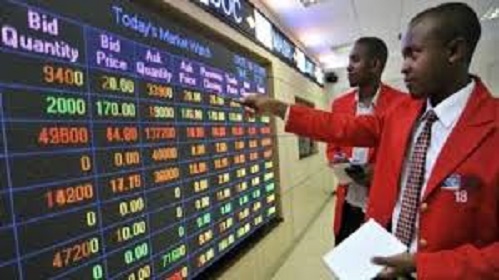
The World Economic Forum (WEF), on Wednesday released its Global Competitiveness index for 2017/2018, showing that Nigeria moved two spots up to rank 125th, even as its score has fallen every year since 2012.
The latest Global Competitiveness Report (GCR) looked at the competitiveness of 137 economies by their ability to sustain inclusive growth, defined as growth that delivers positive change and benefits citizens and the environment.
The index is based on 12 pillars of competitiveness such as: innovation, infrastructure and the macroeconomic environment, ranking countries on how they score in each category, while providing unique insights into the drivers of their productivity and prosperity.
Nigeria’s “macroeconomic conditions,” the report noted, “are worsening (122nd, down 14 spots), inflation (131st) is high at 15.7%,” a situation made worse by the country’s budget deficit (98th) that has reached 4.4%, amidst institutions that appear more fragile (125th, down seven), all of which add uncertainty to the business environment.
“Nigeria is struggling to adapt to lower commodity prices, with the potential for structural change impeded by low scores on infrastructure (132nd), technological readiness (112th, down seven), higher education (116th), and innovation capacity (112th).
“However, new prudential requirements have strengthened the banking sector’s soundness, and the Economic Recovery and Growth Plan (ERGP) for 2017–2020 contains much-needed reforms on transport and power infrastructure, the business environment, and education investment,” the report added.
Nigeria comes way behind Mauritius, the continent’s most competitive country, at 45th in the overall GCI; while South Africa drops 14 places to 61st and Rwanda was down seven places to 58th.
The report named Switzerland as the most competitive global economy for the sixth consecutive year, ahead of the United States (its best ever performance) from third place last year, displacing Singapore, which is impaired by its rising government debt. Netherlands comes fourth, followed by Germany, Hong Kong, Sweden, United Kingdom, Japan and Finland, which occupied the 10th spot.
The report, based on the outcome of a survey by the WEF’s Executive, showed that respondents ranked inadequate supply of infrastructure, foreign currency regulations, access to financing, corruption, inefficient government bureaucracy, political instability and inflation as some of the most problematic factors for doing business in Nigeria.
The most improved African countries year-on-year are Madagascar (121st, up seven spots), Gambia (117th, up six), Kenya (91st, up five), and Senegal (106th, up six), which was due “either to an improved macroeconomic environment (Madagascar and Senegal) or to the efficiency of goods, labor, and financial markets (Gambia, and to a lesser extent Kenya).”
Continued deterioration in the macroeconomic environment was blamed for the fall in competitiveness for most of this year, with average inflation hitting double digits in 2016 and remaining above 10%.
Public finances in most countries on the continent are still being hampered by past slower global growth and commodity prices, falling from an average of 26.5% of GDP in 2006 to 17% in 2016, following which many countries are running deficit budgets. This has further resulted in a soaring public debt over the past two years from an average of 31.5% to 42.5% of GDP.
This, it continued, is responsible for 22 of the 31 countries assessed by the GCI across Africa this year reporting higher debt than last year.
Since 2010, the report noted that “only four countries (Ethiopia, Senegal, Tanzania, and Uganda) have improved their performance for five consecutive years since 2010. Africa’s recent decline in overall competitiveness is reflected in subdued growth rates—only 1.4 percent in 2016 and a modest 2.6 percent projected for 2017.”
The report noted the need for short-term priorities such as restoring macroeconomic stability and institutional trust that would help reignite competitiveness and growth across the continent, while continued investment in infrastructure, human capital, and technological adoption will on the long-run be needed to reduce productivity gaps.
On a global scale, the latest report notes that the global financial system remains vulnerable as is visible from the increasing levels of private debt in emerging economies, and the growth of unregulated capital markets, just two of the elements that worry the authors of the report.














